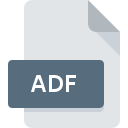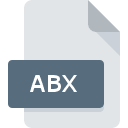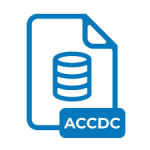.ADF File Extension

ACT! Data File
| Developer | The Sage Group |
| Popularity | |
| Category | Database Files |
| Format | .ADF |
| Cross Platform | Update Soon |
What is an ADF file?
The .ADF (ACT! Data) file extension is primarily associated with ACT!, a customer relationship management (CRM) software developed by Swiftpage ACT! LLC. This file format stores data related to contacts, calendar events, tasks, notes, and other information managed within the ACT! application.
More Information.
Initially introduced as a solution for managing customer contacts and relationships, ACT! quickly gained popularity among small and medium-sized businesses for its robust features and user-friendly interface. The .ADF file extension was designed to efficiently store and organize the vast amount of data generated and managed within the ACT! application.
Origin Of This File.
The .ADF file format originated from the ACT! software suite, which was first developed by Conductor Software and later acquired by Symantec Corporation in 1993. Subsequently, Swiftpage acquired the ACT! product line from Sage Group in 2013.
File Structure Technical Specification.
The .ADF file typically contains structured data organized in a proprietary format optimized for quick retrieval and manipulation by the ACT! software. It may include fields such as contact names, addresses, phone numbers, email addresses, notes, and associated metadata. The specific technical specifications of the .ADF file format are proprietary to ACT! and may vary across different versions of the software.
How to Convert the File?
Windows:
- Open the ACT! software on your Windows computer.
- Navigate to the file menu and select “Export.”
- Choose the data you want to export from the .ADF file, such as contacts or calendar events.
- Select the desired export format, such as CSV or Excel.
- Follow the on-screen prompts to complete the export process.
Linux:
- Install Wine, a compatibility layer that allows running Windows applications on Linux.
- Download and install the ACT! software using Wine.
- Open the ACT! application within the Wine environment.
- Follow the steps outlined for Windows to export data from the .ADF file into a compatible format.
macOS:
- Install virtualization software like Parallels Desktop or VMware Fusion on your Mac.
- Create a virtual machine running Windows within the virtualization software.
- Install the ACT! software on the Windows virtual machine.
- Open the ACT! application within the Windows virtual machine.
- Follow the steps outlined for Windows to export data from the .ADF file into a compatible format.
Android:
- Transfer the .ADF file to your Android device using a USB cable, email, or cloud storage.
- Install a compatible CRM or database management app from the Google Play Store.
- Open the app and navigate to the import or data management section.
- Locate the .ADF file and follow the app’s instructions to import or convert the data into a usable format within the app.
iOS:
- Transfer the .ADF file to your iOS device using email, cloud storage, or a file transfer app.
- Install a compatible CRM or database management app from the App Store.
- Open the app and check if it supports importing or accessing ACT! data.
- Follow the app’s instructions to import or convert the .ADF file into a usable format within the app.
Others:
- Explore online conversion tools or services that support converting .ADF files into more common formats like CSV or Excel.
- Alternatively, consider using desktop software capable of parsing and converting .ADF files into other formats compatible with your operating system.
- If the .ADF file contains structured data, you may manually extract and reformat the information using spreadsheet software or text editors.
Advantages And Disadvantages.
Advantages:
- Efficient storage and organization of customer-related data.
- Integration with other business tools and applications.
- Customizable fields and templates to suit various business needs.
Disadvantages:
- Proprietary file format may limit interoperability with other software.
- Risk of data corruption or loss if the .ADF file becomes corrupted.
- Dependency on ACT! software for accessing and managing data.
How to Open ADF?
Open In Windows
To open .ADF files in Windows, you need to have the ACT! software installed on your system. Once installed, you can double-click the .ADF file to open it within the ACT! application.
Open In Linux
Running ACT! software directly on Linux is not officially supported. However, you may explore compatibility options such as running ACT! through compatibility layers like Wine or using virtualization software to run Windows within a Linux environment.
Open In MAC
Similar to Linux, ACT! software does not have native support for macOS. You may utilize virtualization software like Parallels Desktop or VMware Fusion to run Windows on your Mac and then install the ACT! application to open .ADF files.
Open In Android
ACT! does not offer a dedicated Android app for opening .ADF files. However, you may explore third-party CRM apps available on the Google Play Store that offer compatibility with ACT! data or provide import options for .ADF files.
Open In IOS
As with Android, there is no native iOS app for opening .ADF files directly. You might search for third-party CRM apps on the App Store that support importing or accessing ACT! data.
Open in Others
For other platforms or scenarios not covered above, accessing .ADF files may require innovative solutions such as using cloud-based services that offer remote access to ACT! data or exporting data from .ADF files into more universally compatible formats like CSV (Comma-Separated Values) for further processing or integration with other software.













